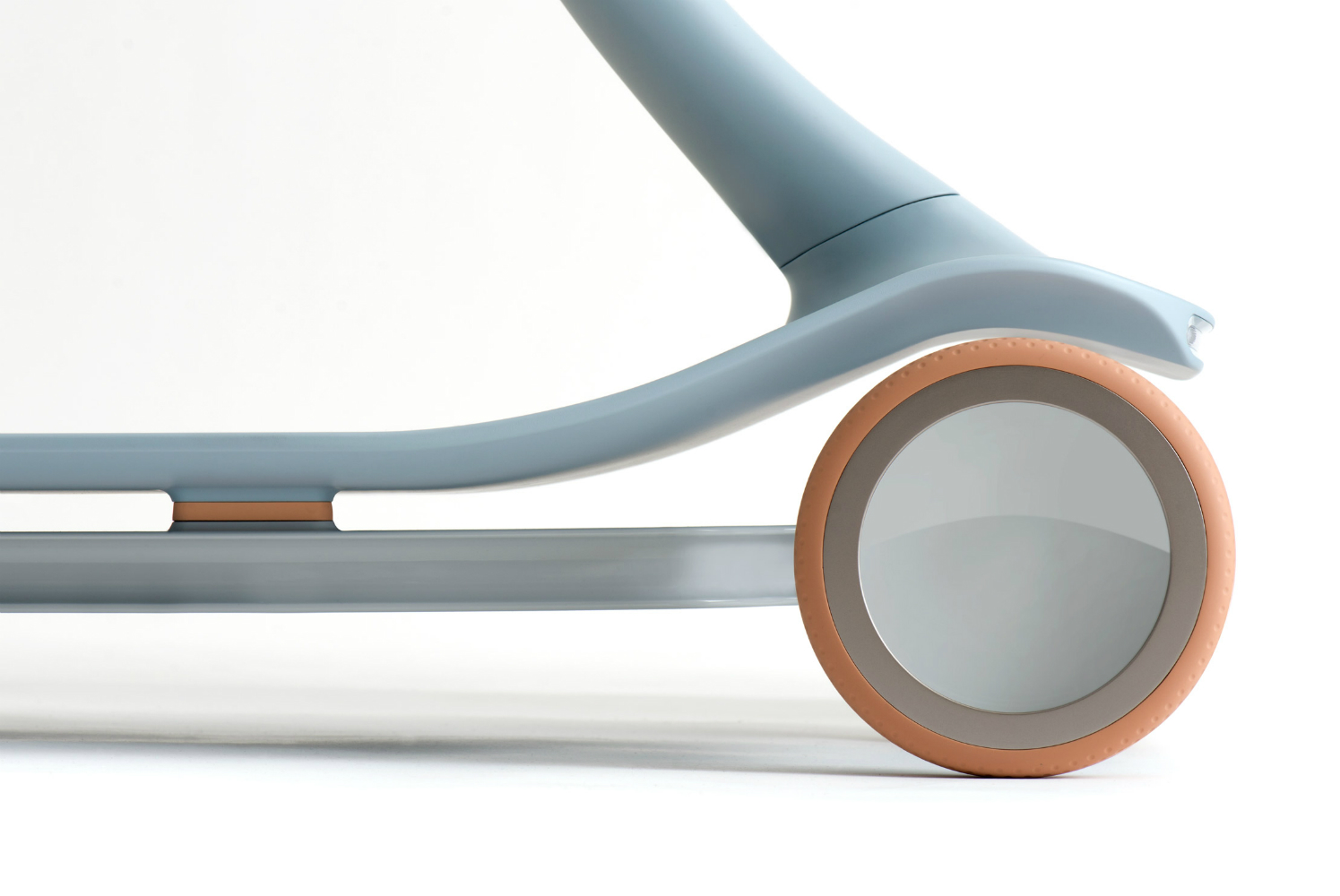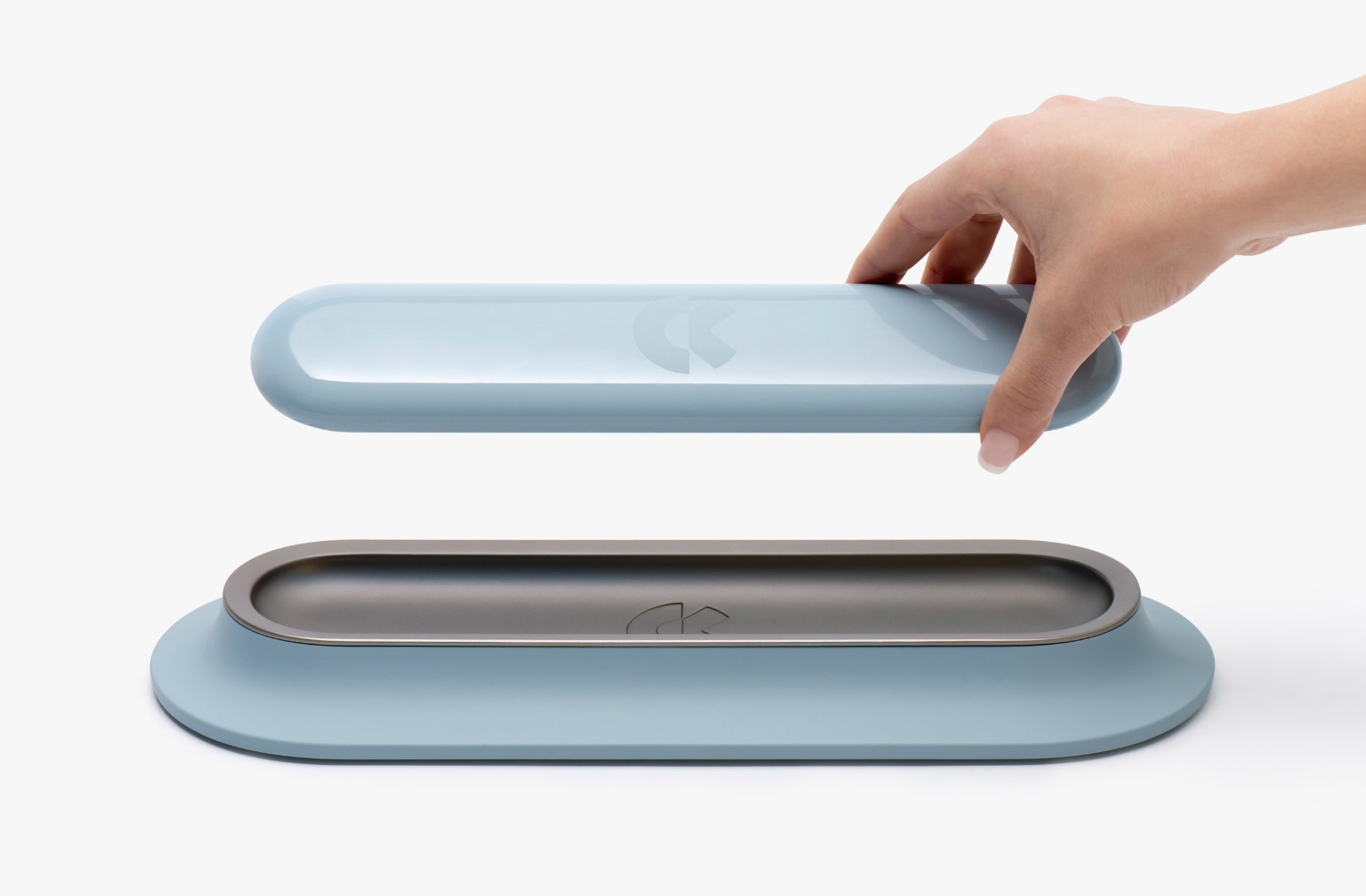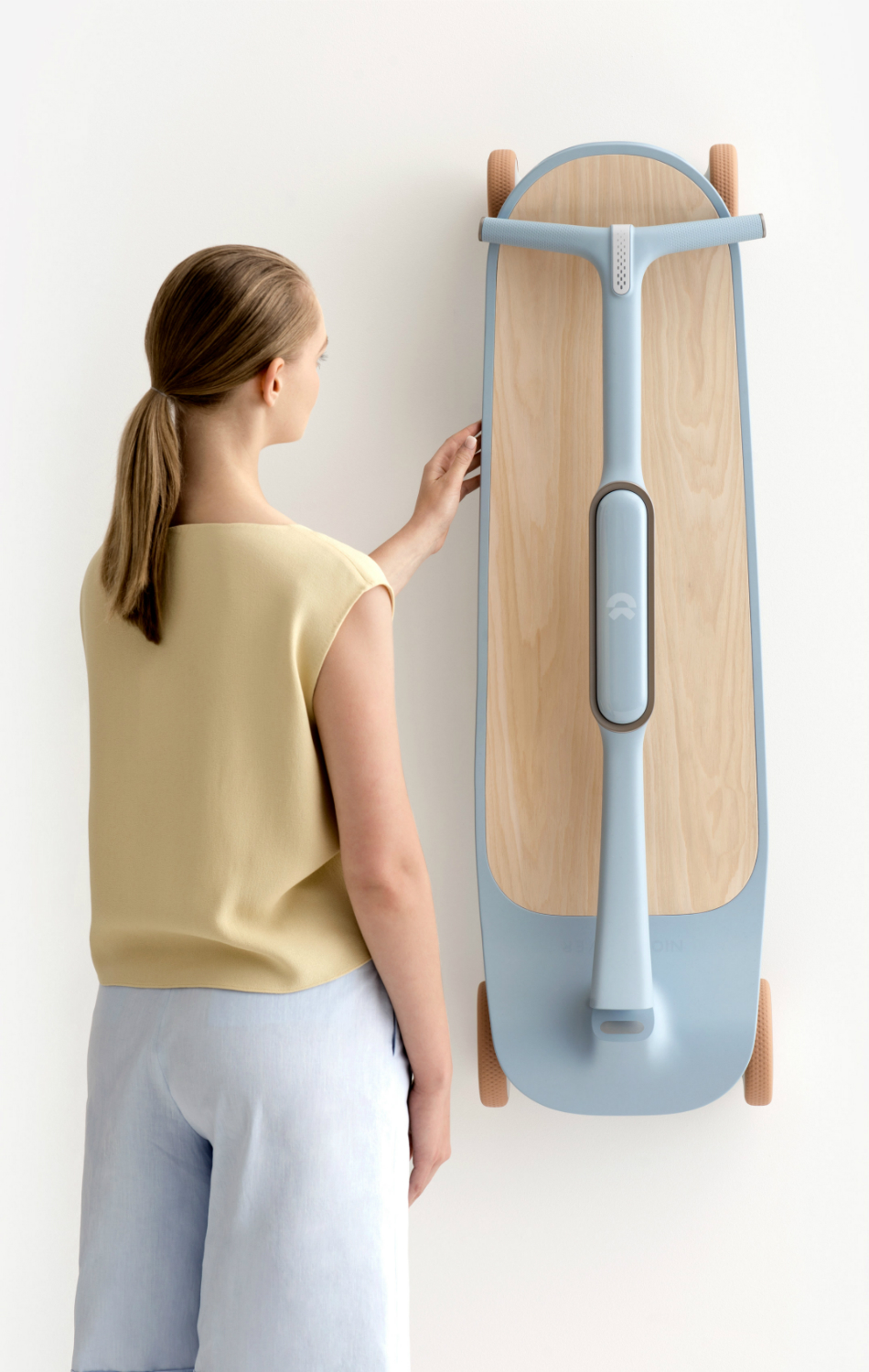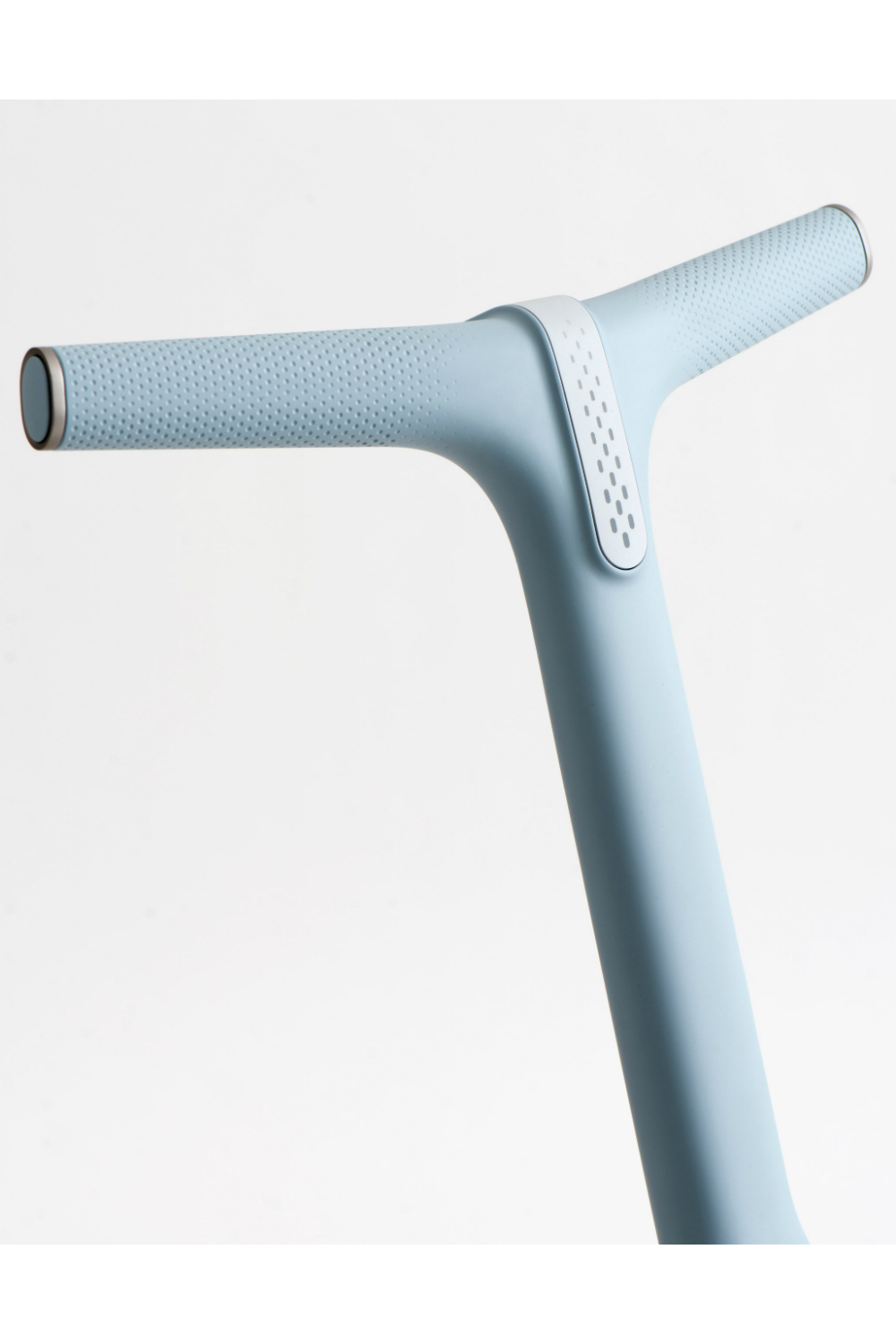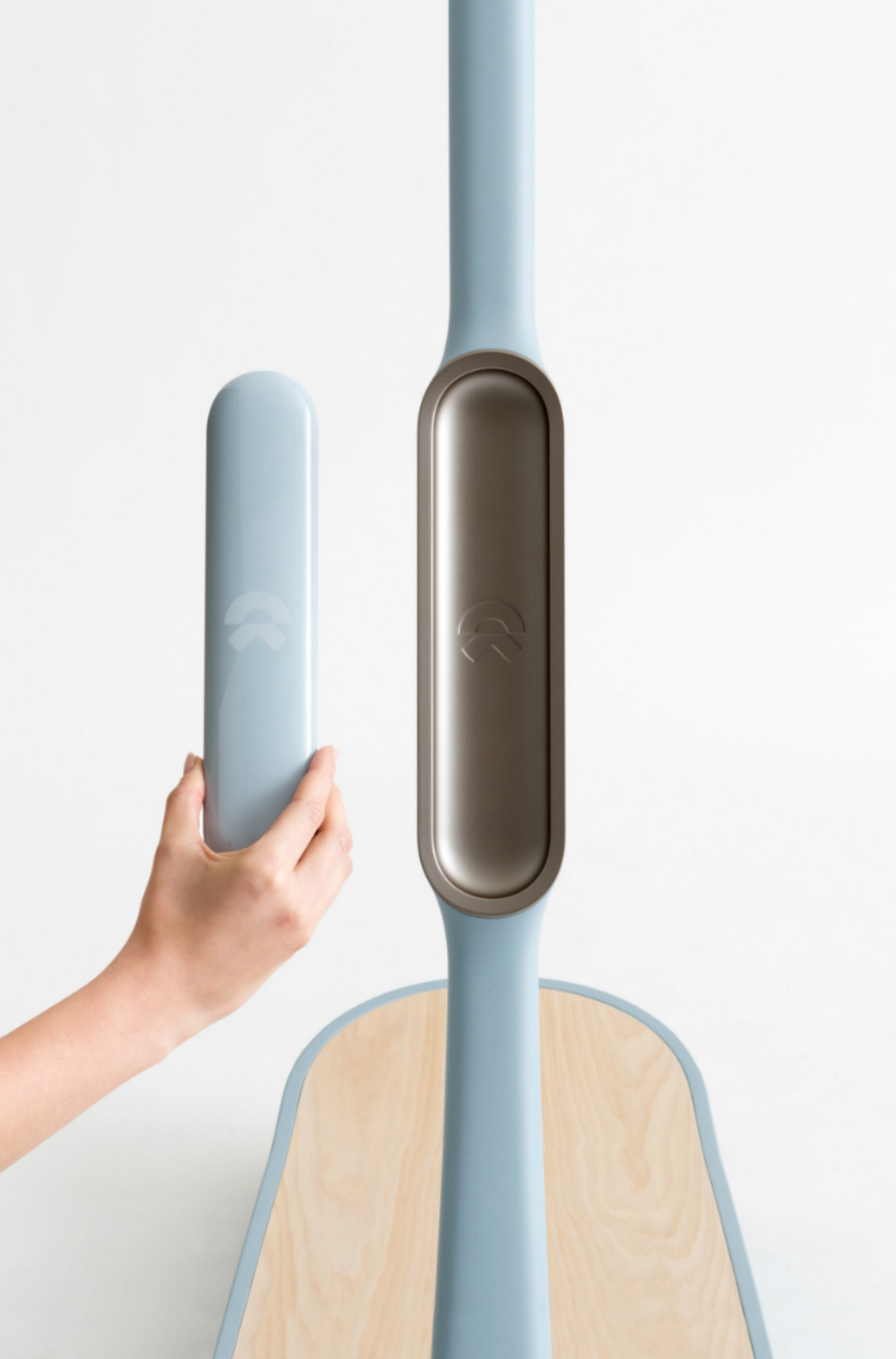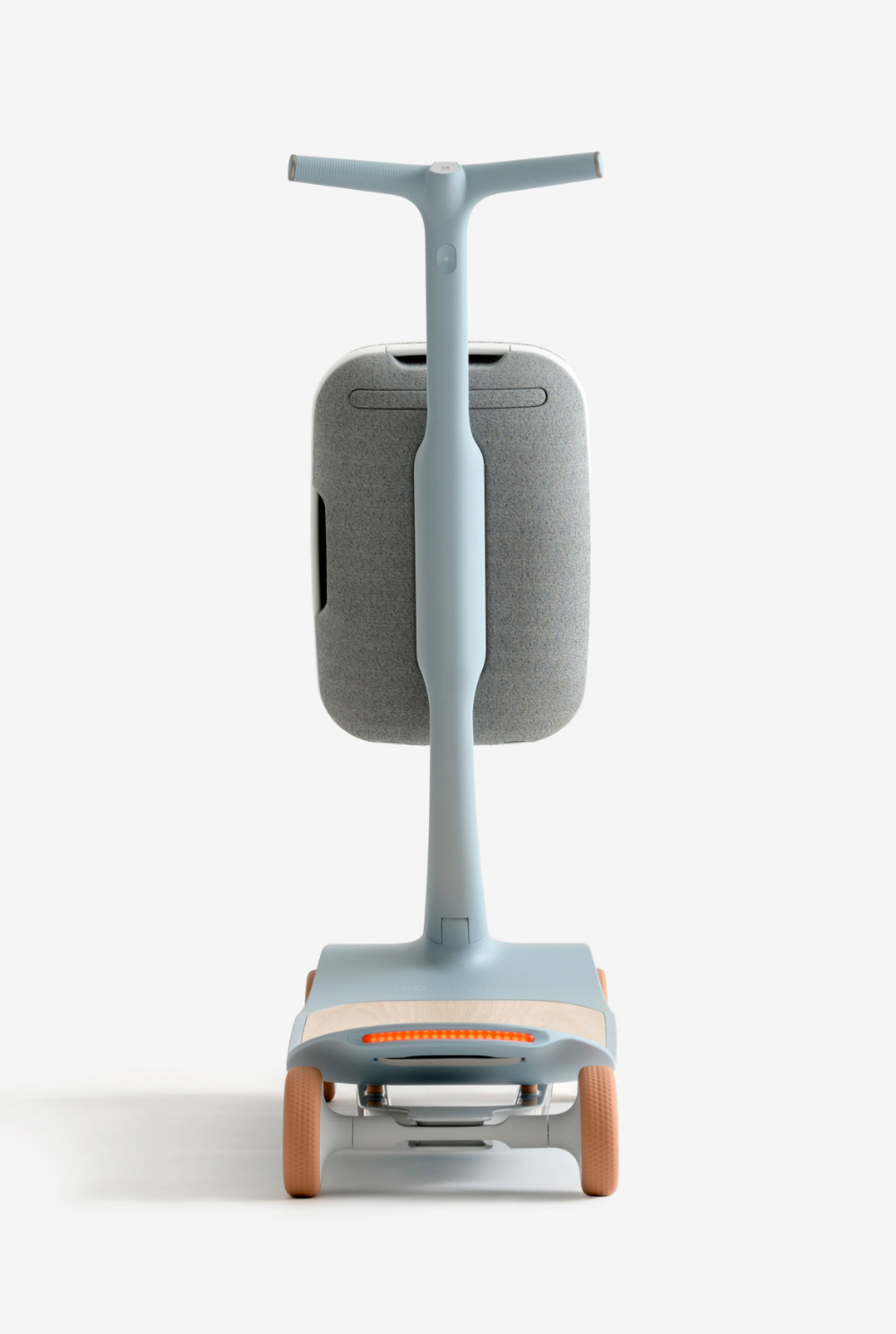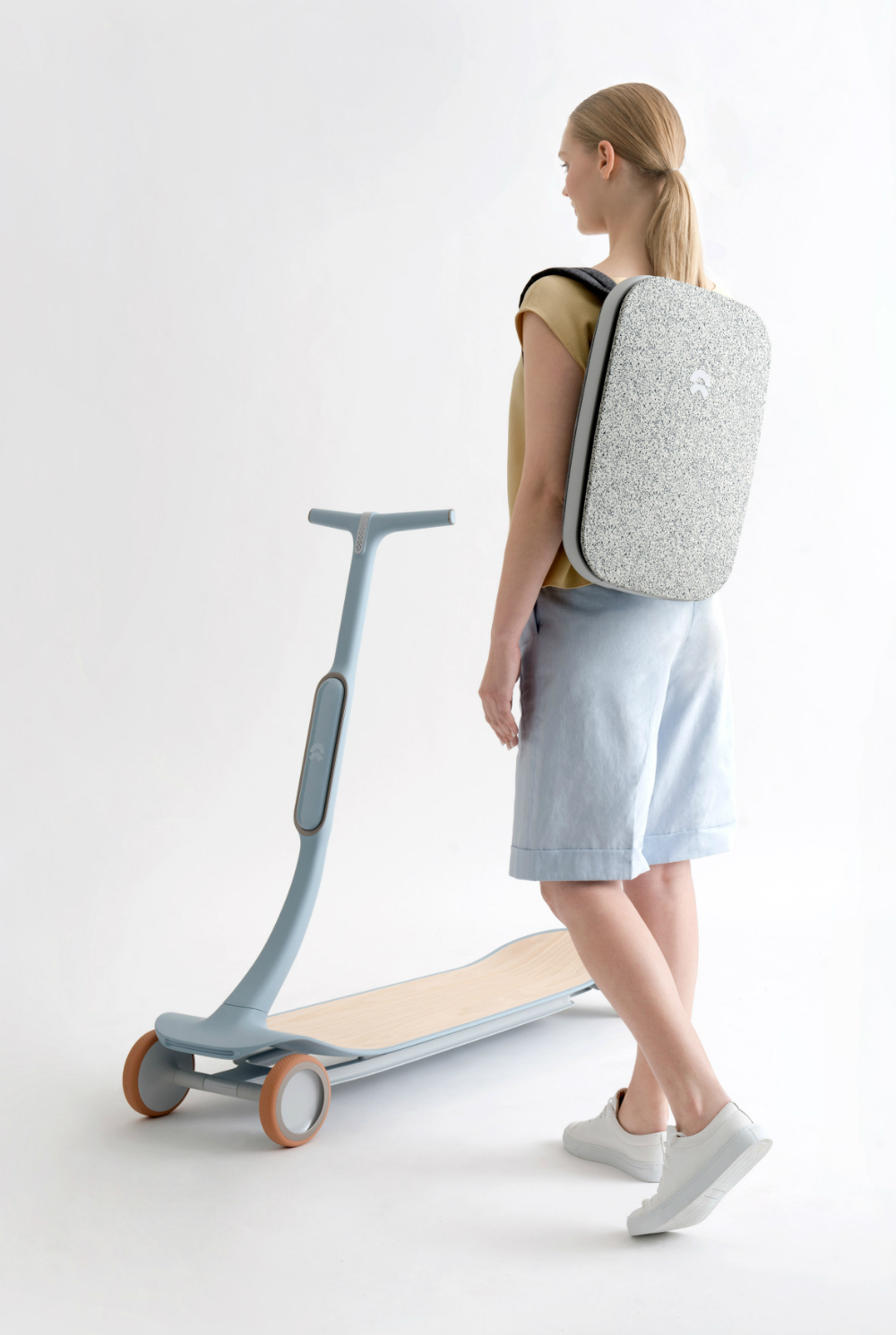A British design studio and a Chinese automotive and smart mobility firm collaborated to develop Pal, a smart, electric scooter. Design firm Layer and mobility specialists Nio propose the stylish, single-rider transport as a “near-future concept” solution for growing traffic congestion in large cities, according to Dezeen.
The Pal uses artificial intelligence machine-learning to recognize common routes. The scooter links to the owner’s smartphone or smartwatch via Bluetooth, and from the phone to Nomi, Nio‘s cloud-based A.I. system. Once the system is familiar with a route, the owner can state a destination into a wireless earpiece and the scooter will take the rider home autonomously.
The scooter has a separate motor in each of its four wheel hubs. When you drive Pal by leaning, its pressure-sensitive suspension can vary wheel speeds to speed up, slow down, or turn left or right.
The concept scooter’s graphene-coated carbon fiber chassis and steering column are extremely strong and lightweight, which is why formula one race cars use the material extensively. The scooter’s light weight adds to its energy efficiency because it can extend the Pal’s range per battery charge.
Pal uses a modular battery that fits in a receptacle on the scooter’s steering column. Layer did not give maximum speed or range specifications, but each scooter would come with a home charger. If one battery charge isn’t enough to complete a journey, the owner can swap in a charged battery for the depleted cell.
Nio cars and SUVs have a battery charging port in the trunk. Because the Pal is so light (again, no specifics for weight), the owner can collapse the steering column and lift the scooter in and out of a car trunk. For people who work in a city but live elsewhere, the electric scooter could be an effective last-mile solution. Owners could park in economical lots outside the city center, extract their Pal from the trunk and ride it to work. The scooter’s light weight would allow the owner to fold and pull it to their desk or workstation where the battery could recharge during the workday.
“At Layer, we believe that the future is autonomous and sustainable, and it is important to create products that offer more convenience without inconveniencing the planet,” said Layer founder Benjamin Hubert.



